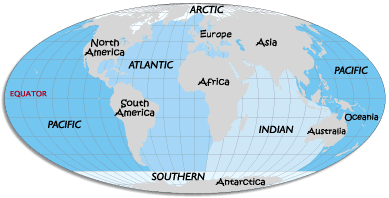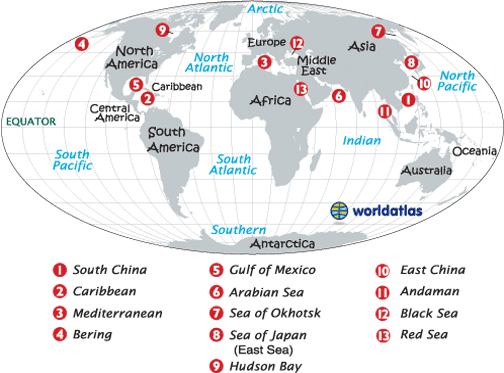I have been tasked with writing about Ocean Conservation. As I have been mulling over the topic and doing some research, it has occurred to me that this is a very large subject and will require quite a lot of time and attention to cover it adequately. It is not a one blog type of scenario.
As a guy who spends a great deal of time in the water, I pay attention to the weather, water conditions, tides, etc. The simple truth though, is that I do this pretty much only for my local haunts here off the coast of Southern California. Now, I have been in the water in the Pacific, the Atlantic (both off the US
and Europe), the Gulf of Mexico, and the Mediterranean Sea. Not to mention countless lakes and rivers across the USA. But this covers a span of about 40 years. So, it seems, my vision has shrunk a bit to only be on what’s happening locally. Then, it dawned on me that this may indeed be the case for many of
you too, whether you have ever traveled or not.
Your focus may also be local, not global. I apologize in advance if your vision is wider and your knowledge base is larger. If so, then please just read along until we get to that nugget that you may not have known about. For the rest of us, I figured I would just start
from the beginning with the basics. Then, each week coming up, I can address different oceans and the specific problems they may face along with some possible solutions either in the works or at least on the table as options. Obviously, some topics will require multiple parts as we are talking about a lot of water!
Having said all of that…Let’s begin at the beginning. And, I know this may be preaching to the choir, but please bear with me until we get rolling in the upcoming weeks.
The surface of the Earth is covered by 71% water and is the home to 5 oceans including the Arctic, Atlantic, Indian, Pacific, and Southern. For many years there were only 4 oceans recognized. In the year 2000 the International Hydrocephalic Organization created the Southern Ocean, and determined
its limits. Those limits include all water below 60 degrees south, with some of it, like the Arctic Ocean, being frozen.

In terms of size, the Pacific is the granddaddy of them all with 155,557,000 sq km (60,060,868 sq miles), with the Atlantic second at 76,762,000 sq km (29,637,961 sq miles), followed by the Indian Ocean at 68,556,000 sq km (26,469,608 sq miles), a distant 4th is the Southern Ocean at 20,327,000 sq km (7,848,295 sq miles), and bringing up the rear is the Arctic at 14,056,000 sq km ( 5,427,049 sq miles). The land masses cover approximately 29% of the earth. The breakdown of the water coverage is 97% salt water and 3% fresh water.
Please keep in mind that we have not addressed the Seas of the world. Which are: South China, Caribbean, Mediterranean, Bering, Gulf of Mexico, Arabian, Sea of Okhotsk, Sea of Japan (East Sea), Hudson Bay, East China, Andaman, Black and Red Seas. Each of these will have its own set of attributes and specific issues that we will, ultimately, take time to explore.
So, whichever body of water is your local choice, as I close out this initial installment of the series, I think we have at least covered the basic info that will be the foundation for the upcoming weeks and months of articles about Ocean Conservation. We know that water covers the majority of the earth and that most of it is salt water. And, that even though the land masses pale in comparison, there is an integral link that ties them together.
There are going to be human causes of oceanic problems and there are going to be natural causes of same as Mother Nature has a mind of her own too. Maybe, just maybe, if we all work together we can at least recognize and mitigate the human causes so our precious oceans will last for generations to come in in terms of being a resource for our lives and a valuable playground for those of us that choose to be immersed in their greatness.


